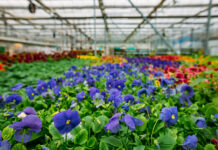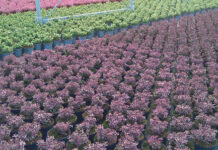
Photosynthesis – the process by which plant leaves convert sunlight into energy – could hold the key to food security and help fight global warming in the future according to scientists launching a major research project to understand the process better.
Four teams of researchers from American and British universities as well as the John Innes Centre in Norfolk have won a total of £6.1 million in funding to look into how photosynthesis can be harnessed to improve crop yields and absorb carbon dioxide from the atmosphere.
Potatoes, beetroot and cereal crops such as wheat and barley photosynthesise poorly, producing relatively little energy from the sunlight they absorb. Single-celled green freshwater algae on the other hand are supremely efficient as they can concentrate carbon dioxide before converting it into many times more energy from the same amount of sunlight.
The researchers want to find out how algae are able to do this and then find out if that process can be introduced via genetic engineering into other plants – potentially speeding up photosynthesis in those plants and vastly improving growth and yields.
The technology could also be used to produce an ‘artificial leaf’ capable of absorbing carbon dioxide from the atmosphere and potentially slowing down global warming.
Professor Janet Allen of the BBSRC, the UK government research body co-funding the projects, said the research was ‘hugely ambitious’, but could offer profound benefits.
‘The world faces significant challenges in the coming decades – and chief among these is producing enough sustainable and affordable food for a growing population,’ she said. ‘Even a small change to the efficiency of photosynthesis would make a huge impact on these problems.’Photosynthesis could hold the key to food security and help fight global warming, according to scientists.
Source: Royal Horticultural Society – Photosynthesis in crop plants






